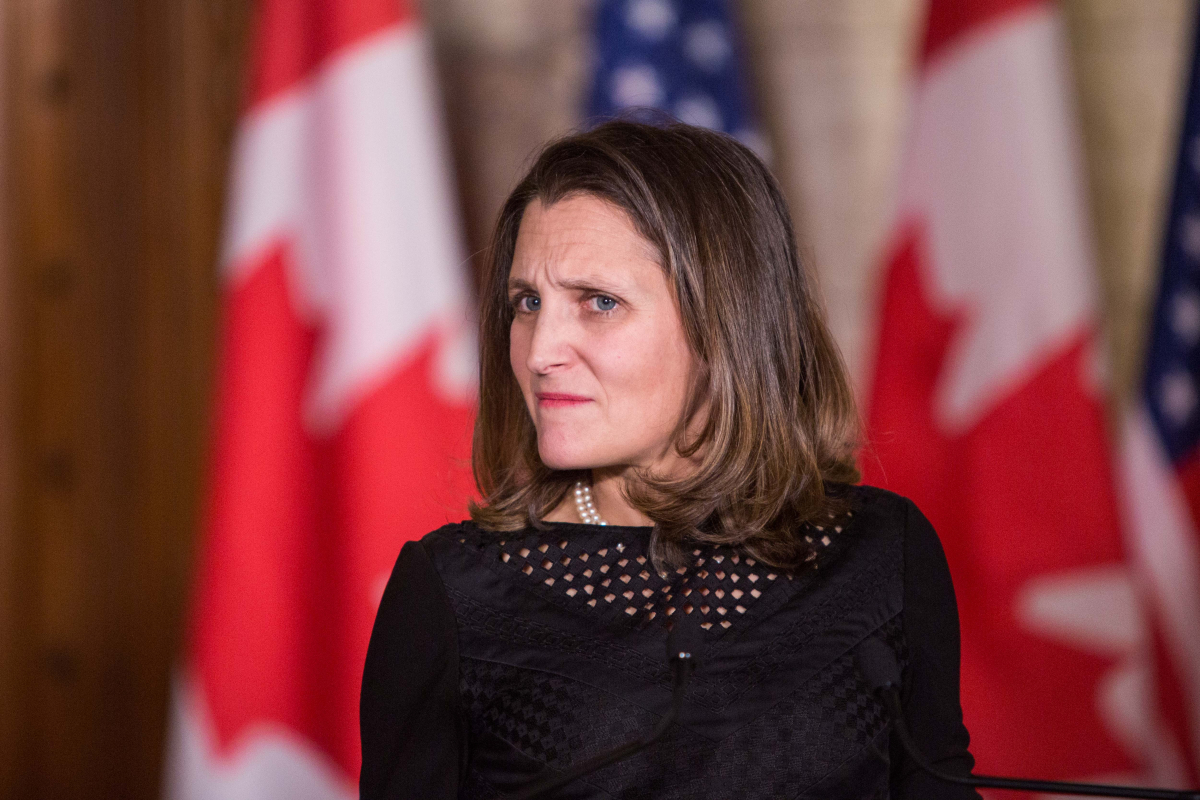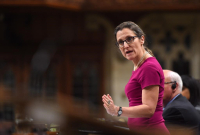Support strong Canadian climate journalism for 2025
A string of calming comments from U.S. President Donald Trump about NAFTA has proponents of the agreement breathing some relief that his trigger finger is far from the button that would blow up the deal.
He made about a half−dozen of them to The Wall Street Journal.
A transcript of the interview shows Trump saying of the negotiations: "We’re moving along nicely,’’ "There’s no rush,’’ "I’m leaving it a little flexible,’’ "We have a chance of making a reasonable deal,’’ "We’ve made a lot of headway.’’
He said the benefits of a new NAFTA would pay for his proposed border wall with Mexico, while expressing understanding that it’s tough for Mexico to negotiate during its election.
He still repeated his threat to cancel the agreement if he can’t get a better deal. But proponents from the Canadian and Mexican governments and NAFTA−supporting stakeholders in the U.S. all see this as positive.
Foreign Affairs Minister Chrystia Freeland said at a Liberal cabinet retreat in London, Ont., that Trump’s newfound patience on NAFTA renegotiations is "sensible" and "constructive."
She said Canada had always taken the position that it’s not helpful to impose artificial deadlines on the talks, such as the current schedule of rounds set to end in March. She added that Canada is prepared to spend as much time as it takes to get a good deal.
Mexico’s Economy Minister Ildefonso Guajardo made similar comments to the newspaper El Pais. Guajardo said a notice of termination does not appear imminent. He also expressed a desire for a quicker deal, to calm markets.
Some Americans have been detecting lately that the pro−NAFTA lobby effort is working. Robert Holleyman, a former senior trade official under Barack Obama, and Canada−U.S. trade lawyer Dan Ujczo said the intense pressure is having some sway — especially from farming states that voted for Trump.
Farmers have already been hit with commodities plunges and have been pleading with the president, through members of Congress and members of his administration, not to compound the crisis by threatening exports.
Trump made more−muted−than−usual remarks to a farm−lobby conference last week regarding NAFTA. Ujczo was at that conference, then left for a business trip to Canada and was struck by the urgent tone of news reporting suggesting a pullout was imminent.
"I was stunned,’’ said Ujczo. "You come up here (to Canada) and the situation’s completely escalated. ... (But) I’m more optimistic now.’’
He said it’s crucial that the upcoming negotiating round in Montreal Jan. 23−28 show some progress. As long as there’s forward momentum in the talks, he said, it’s less likely Trump will touch the exit button, NAFTA’s Article 2205, which allows a country to leave after six months’ notice.
Trump keeps suggesting he’d rather use that exit clause to pressure the other countries. Ujczo said the lobbying efforts may be convincing Trump that Article 2205 is less of a useful negotiating tactic — and more of a ’’Pandora’s Box,’’ that once opened, can disrupt markets and raise the risk of the deal truly ending, which he said he does not believe Trump actually wants.





Comments